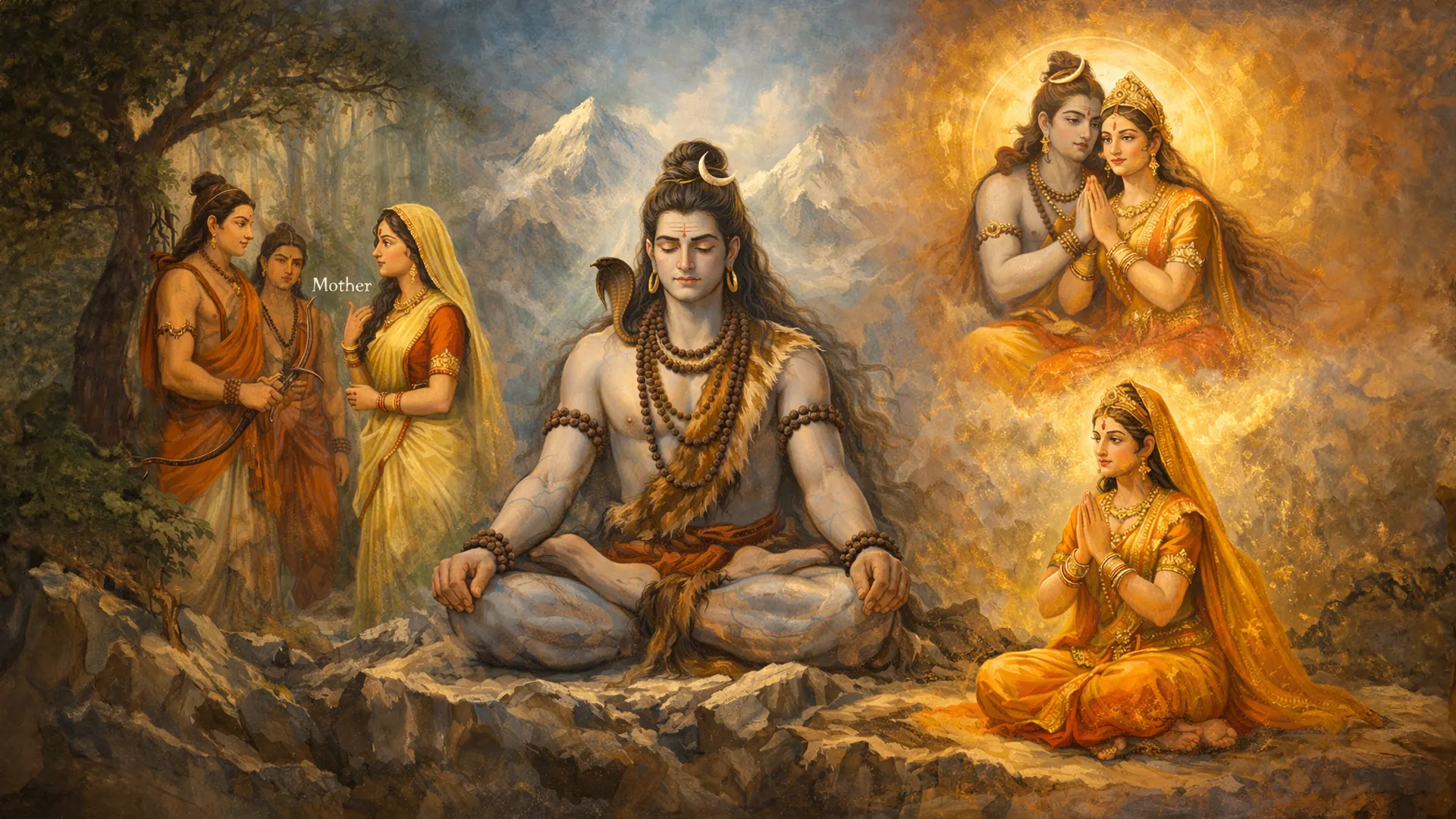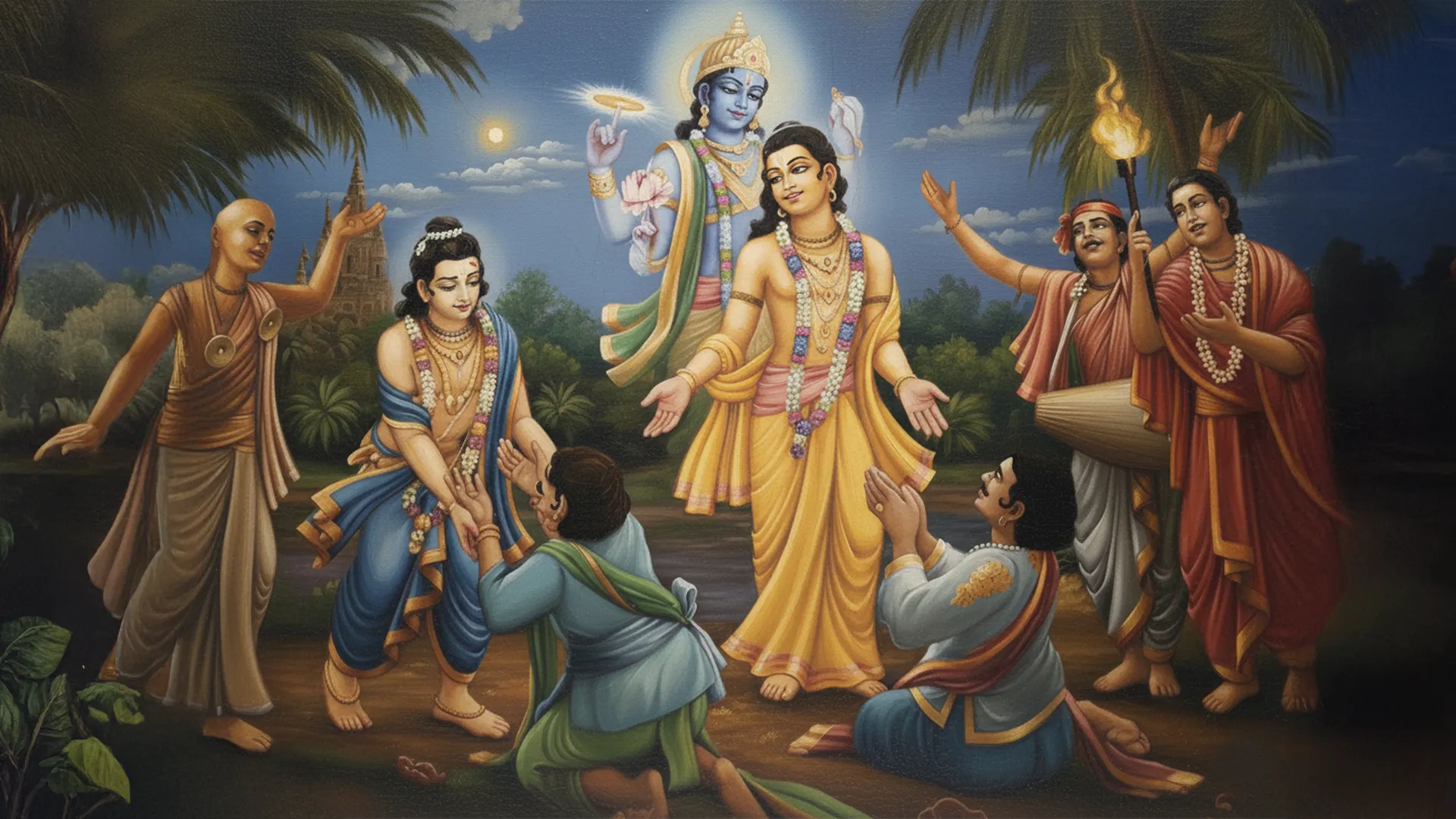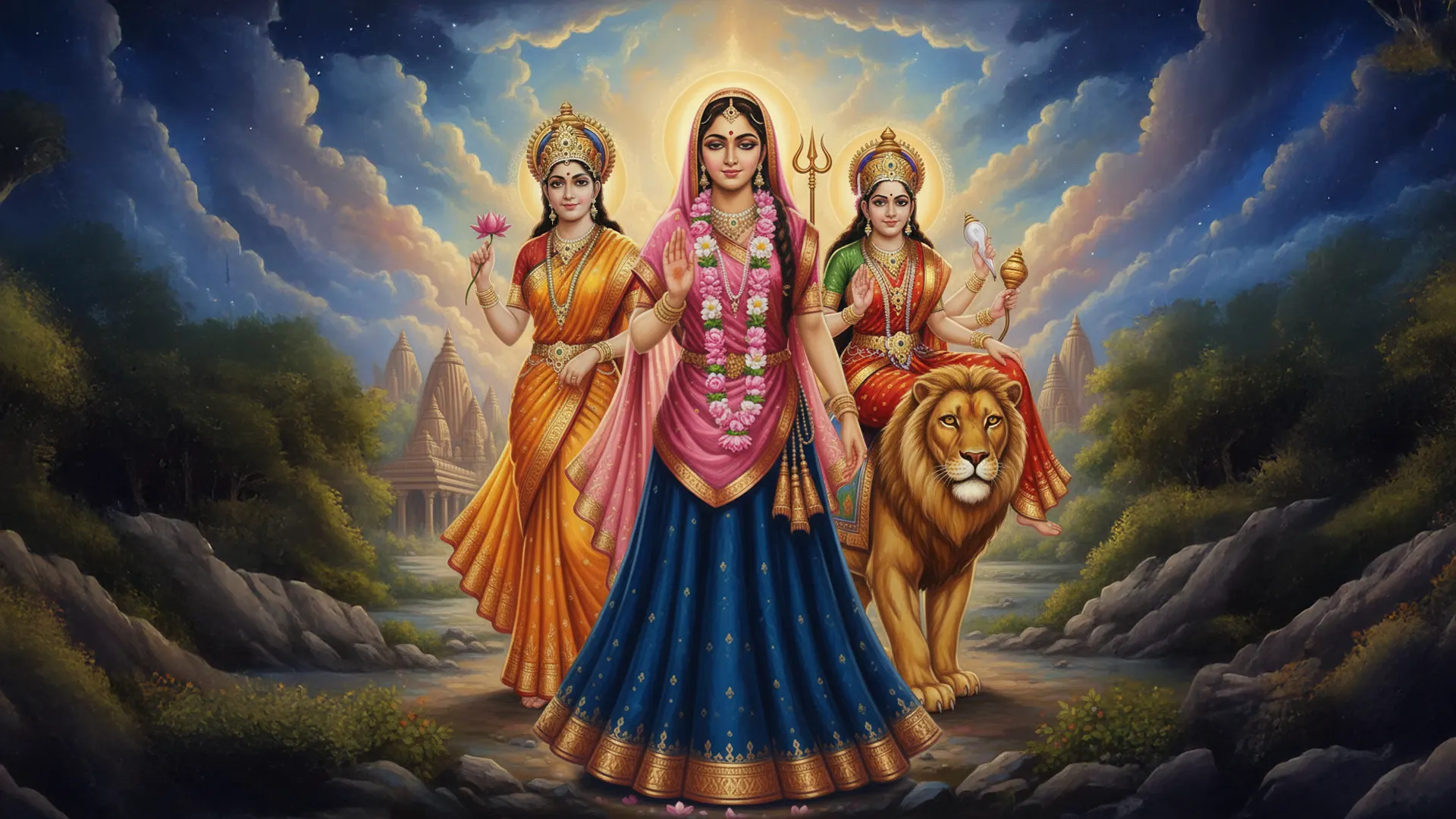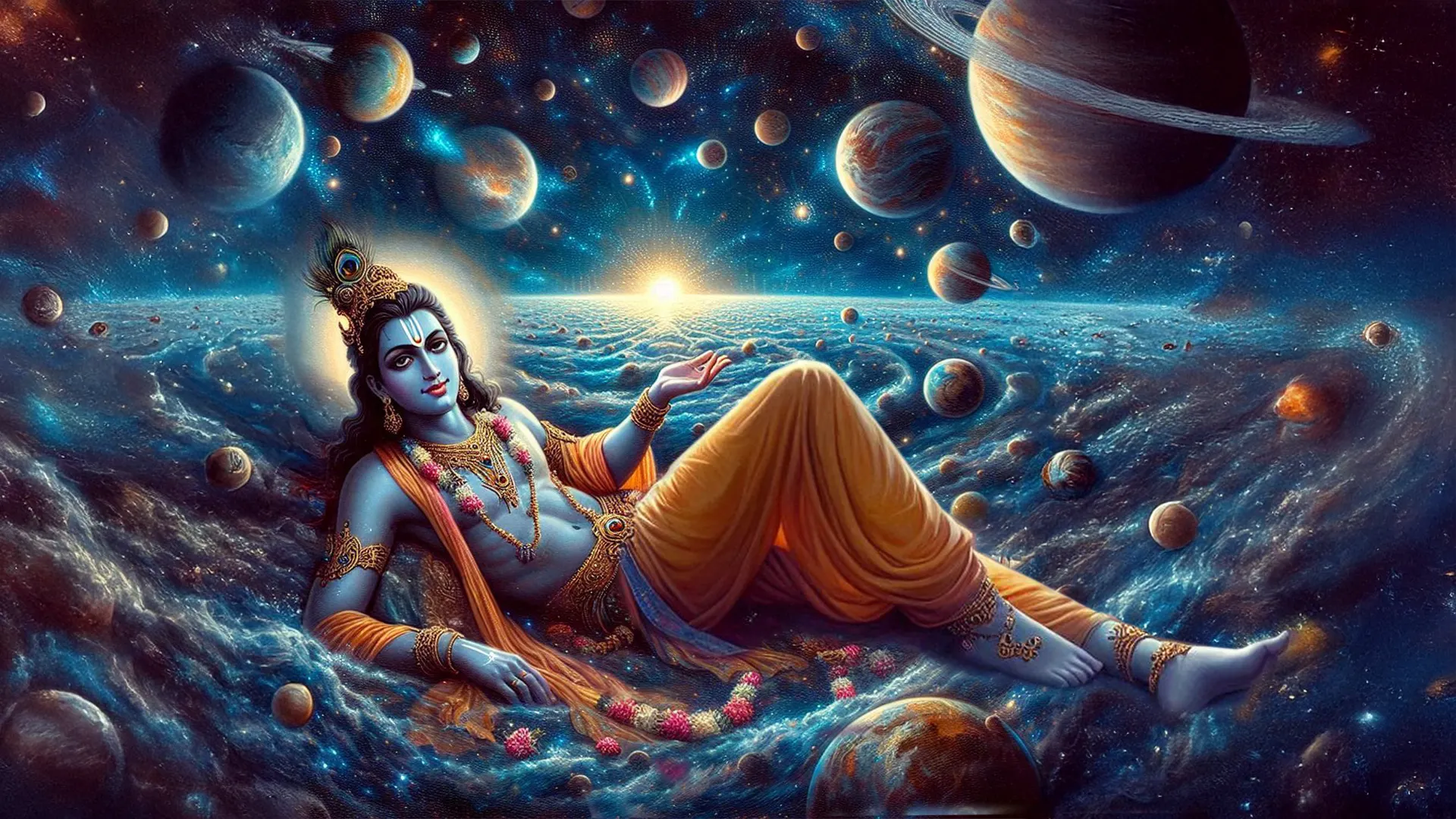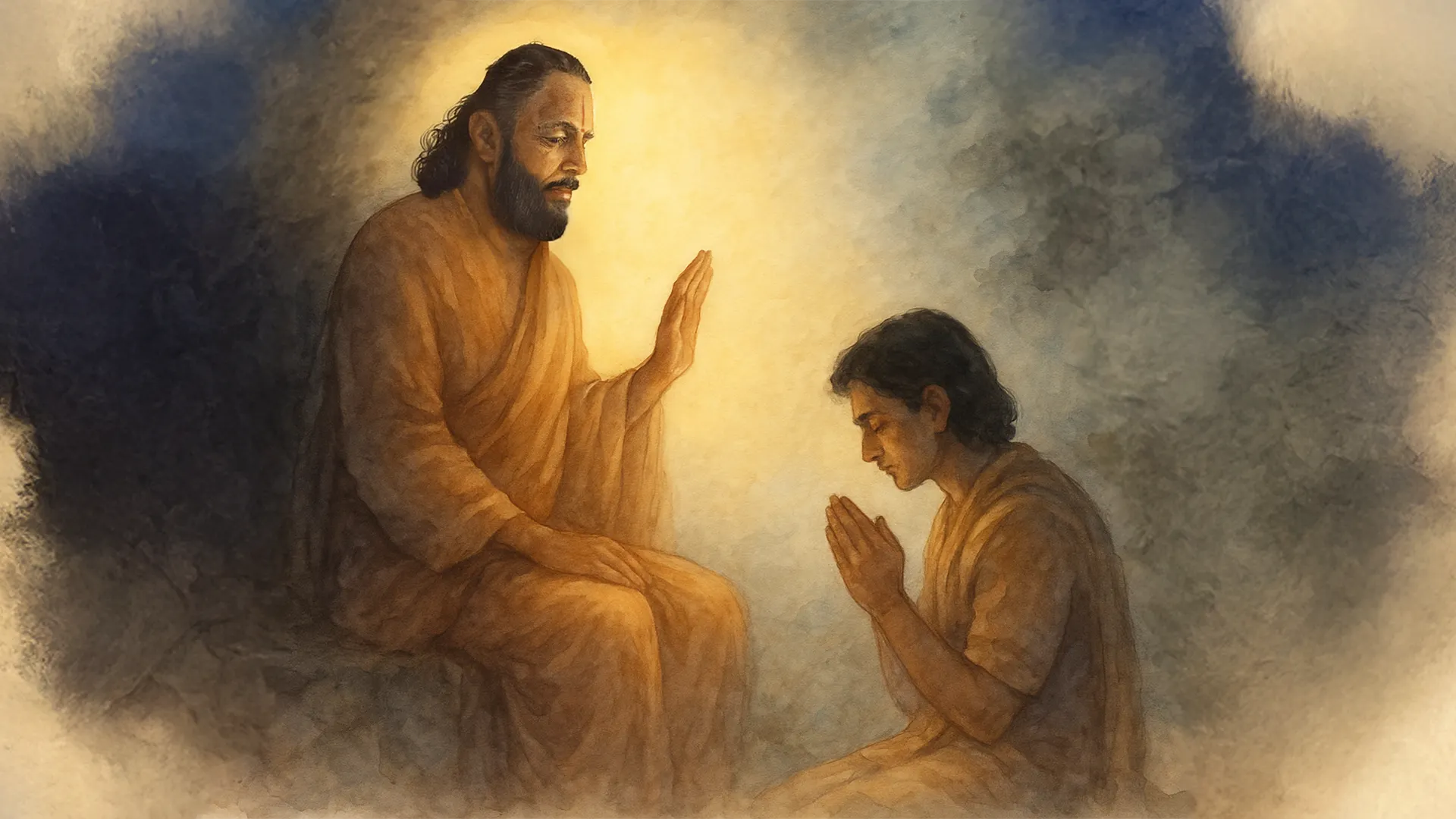Suffering in the world is a universal truth, and no soul can escape from it. The primary teachings of the Buddha emphasize that everything is transitory in this world. All things pleasant will inevitably change. All beautiful things in the world will decay. Body, mind, relationships—everything will fall apart. Among spiritual seekers, an oft-raised question is: If God is omnipotent and merciful, why doesn’t He remove suffering from the world?
The question is justified, and many ways exist to answer it. Firstly, God grants us free will to allow us the freedom to distinguish between good and evil. If God intervened and removed evil and suffering, we would never experience progress in our spiritual path. We would also become machines, unable to love or hate God. When man learns to love God through suffering, he has truly passed the test of Maya. Secondly, God is a fair judge of our karmas and merely keeps an account of our merits and demerits earned through many lifetimes. The consequences of our karmas are thus faced in the form of suffering. Through suffering, we contemplate our mistakes and are humbled. This allows us to soar higher on the spiritual path. These questions were dealt with in detail in the last month. Now we shall delve into some other significant answers to the question: “If God is merciful, then why is there suffering in the world?”
We are not the body but the soul
God wants us to remember that we are not the body but the soul, a tiny part of God. However, in the material world, we become vimukh and turn away from God. That is the cause of all suffering in the world. We turn away from God and turn toward the world. We believe the world is a place for fulfilling our material desires, and we attach our minds to worldly pleasures. Attachment causes desire, and desire leads to anger, hatred, envy, and so on. All of these vices, in turn, lead to suffering. Fulfilment of desire leads to greater desire, and when that greater desire is not fulfilled, even that leads to suffering. So, if the world is giving us misery, God is not to be blamed. We have attached our minds to the world, believing that happiness lies in the world. This is where our intellect is flawed. God wants us to understand that happiness does not lie in the world but merely in the love of God. And to taste that divine nectar, we need to turn towards God and become sanmukh.
To purify our minds of worldly attachment
Suffering thus indicates that the soul is vimukh and needs to move away from worldly consciousness and adopt God-consciousness. To purify our minds of worldly attachments, we must surrender our body, mind, and intellect to Guru and God. Sri Krishna tells Arjun in the Bhagavad Gita (2.51),
कर्मजं बुद्धियुक्ता हि फलं त्यक्त्वा मनीषिण: |
जन्मबन्धविनिर्मुक्ता: पदं गच्छन्त्यनामयम् ||
karma-jaṁ buddhi-yuktā hi phalaṁ tyaktvā manīṣhiṇaḥ
janma-bandha-vinirmuktāḥ padaṁ gachchhanty-anāmayam
"The wise endowed with equanimity of intellect, abandon attachment to the fruits of actions, which bind one to the cycle of life and death. By working in such consciousness, they attain the state beyond all suffering."
In the next verse (2.52), God confirms that such a person whose intellect is enlightened with spiritual knowledge realizes that material pleasures only bring suffering. At the same time, God is the source of Supreme Bliss.
यदा ते मोहकलिलं बुद्धिर्व्यतितरिष्यति |
तदा गन्तासि निर्वेदं श्रोतव्यस्य श्रुतस्य च ||
yadā te moha-kalilaṁ buddhir vyatitariṣhyati
tadā gantāsi nirvedaṁ śhrotavyasya śhrutasya cha
"When your intellect crosses the quagmire of delusion, you will become indifferent to what has been heard and what is yet to be heard (about enjoyment in this world and the next)."
This implies that when the intellect has overcome the material energy maya, the soul shall turn away from the world and become God-conscious. This is the state God wants his children to acquire.
To pull us closer
Suffering was instituted in the world so as to dispel our sins and our forgetfulness of God. It is God’s way of helping souls drive away worldly delusions. By doing so, He pulls the wayward souls closer to Him, and thereby, they surrender their body, mind, and intellect to the Supreme. Swamiji says in one of his lectures: “The world wasn’t made for us to be happy. The world was made for us to learn, to grow, to evolve, and to rise”. If God removed all evil and made us God-realized without our efforts to understand divine wisdom, the purpose of creating the world would fail.



